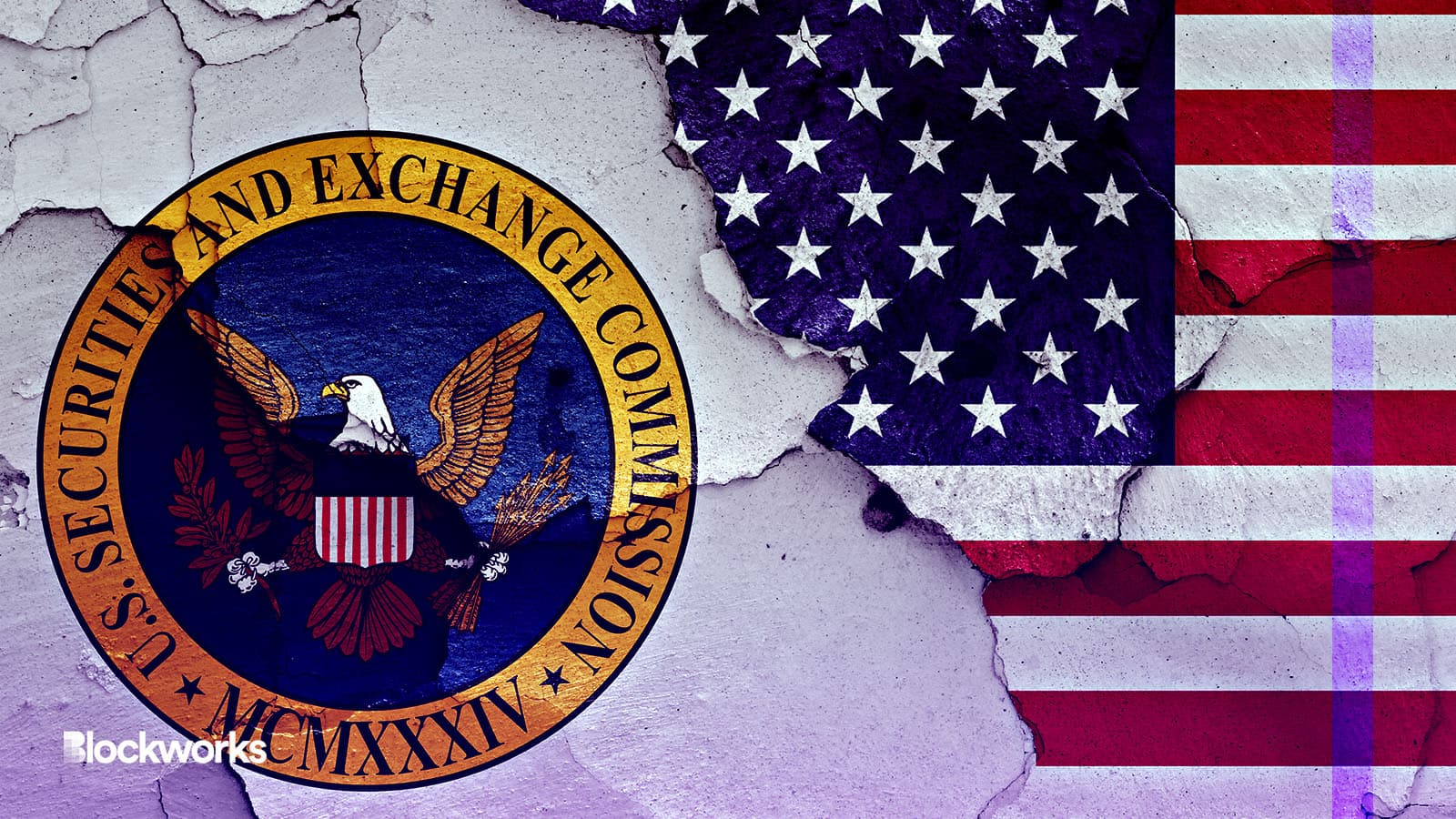Coinbase pushes to dismiss SEC lawsuit
Coinbase says the “subject matter” of the lawsuit “falls outside of the agency’s delegated authority”

danielo/Shutterstock, modified by Blockworks
Coinbase filed a motion to dismiss in the US Securities and Exchange Commission’s case against the crypto company on Friday.
In the newest filing, Coinbase argues that the SEC has “violated due process, abused its discretion and abandoned its own earlier interpretations of the securities laws.”
However, the reason for dismissal as reiterated by Coinbase is the fact that the “subject matter falls outside of the agency’s delegated authority.”
“The SEC may pursue this enforcement action only if relevant transactions in the digital assets and services identified in the Complaint are ‘investment contracts’ and therefore ‘securities’ under the Securities Act of 1933 and the Securities Exchange Act of 1934. Because as a matter of law none of them are, the claims must be dismissed,” Coinbase argues.
Further, Coinbase says that the SEC had looked over the four services — Prime, Wallet, staking and the spot exchange — that it now targets back when Coinbase took the necessary steps to become a publicly traded company in 2021. At the time, Gensler deferred to Congress as the authority to regulate crypto exchanges, the motion alleges.
This argument from Coinbase is similar to one that it made back in late June, when it alleged that the SEC can’t “retroactively” regulate digital asset exchanges, and said that the SEC cannot seize power.
Specifically, on staking, Coinbase said that the staking service could not fall under an investment contract because ”they do not involve relinquishment of property creating a risk of loss,” which is a necessary element of being a security.
“The SEC tries to force this garden variety fee-for-services arrangement into the definition of an investment contract,” Coinbase says.
Coinbase uses the Ripple ruling, in which the judge found that the institutional sales met the Howey requirements, while the programmatic sales did not.
“The Ripple court found no investment contract based on facts substantially identical to those alleged here,” Coinbase says.
Outside of arguing for a dismissal of the claims, Coinbase also argues that the Major Questions Doctrine would “require dismissal of the complaint” because it needs “clear congressional authorization” which Gensler and the SEC currently lack.
The SEC sued Coinbase alleging that it was operating as an unregistered exchange and offering unregistered securities back in June.
Both the SEC and Coinbase have been locked in multiple legal battles as the crypto company pushes for regulatory clarity.
Get the news in your inbox. Explore Blockworks newsletters:
- The Breakdown: Decoding crypto and the markets. Daily.
- 0xResearch: Alpha in your inbox. Think like an analyst.






